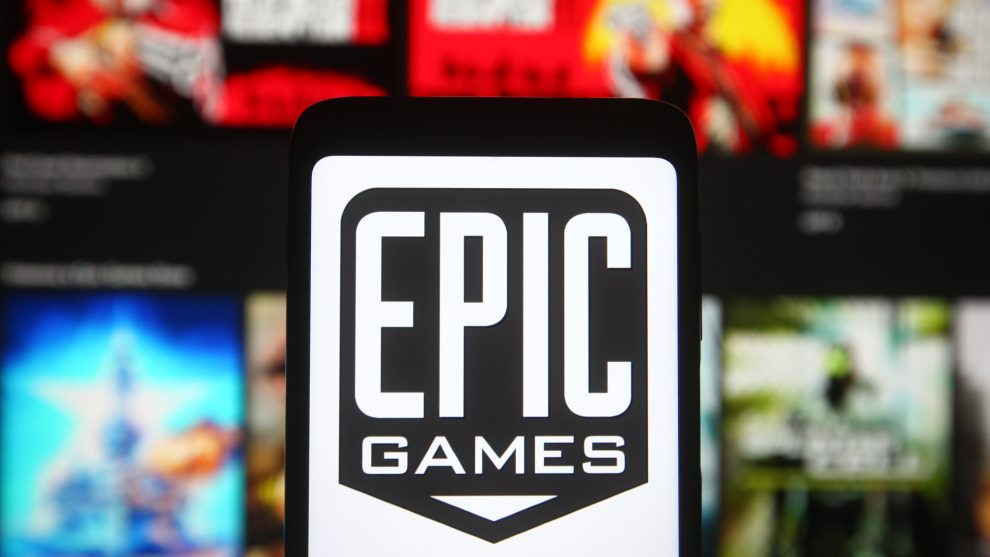The PC gaming world is a bustling arena where giants like Steam, GOG, and Origin have long battled for dominance. However, in recent years, a new player has entered the fray, shaking up the industry with its disruptive tactics: the Epic Games Store (EGS). At the heart of the controversy surrounding the EGS lies its utilization of exclusivity deals, which secure certain games solely for their platform for a limited time, effectively locking out competitors like Steam. While Epic champions these deals as a boon for developers, they’ve ignited a firestorm of criticism among a significant portion of the PC gaming community. In this article, we’ll delve into the divisive issue of Epic Games Store exclusivity deals, examining both sides of the argument and exploring potential solutions to bridge the gap.
The Allure of Exclusivity for Epic
From Epic’s perspective, exclusivity deals offer a multitude of advantages. Firstly, they serve as a powerful magnet for developers, particularly smaller studios, by providing a guaranteed audience and a more favorable revenue split compared to industry juggernaut Steam. The standard revenue split on the Epic Games Store stands at 88/12, significantly more favorable than Steam’s 70/30 split. This financial incentive can be a game-changer for developers, encouraging them to bring their titles to the EGS platform, thereby fostering healthy competition in the digital distribution space.
Moreover, exclusivity deals play a pivotal role in expanding the user base of the Epic Games Store. The allure of accessing highly anticipated titles exclusively on the platform often entices gamers to give it a try. Once on the EGS, these users may discover and purchase other games, thereby bolstering the platform’s ecosystem.
Additionally, Epic touts exclusivity as a means of curating a more refined storefront experience. By carefully selecting which games are offered exclusively on their platform, they aim to maintain a higher quality standard, enhancing the overall appeal of the EGS to gamers.
The Gamer’s Grudge: Frustrations with Exclusivity
Despite the perceived benefits for developers and the platform itself, many members of the PC gaming community remain deeply skeptical of Epic’s exclusivity strategy. The following are the primary points of contention:
Fragmentation
One of the most significant sources of frustration among gamers is the fragmentation caused by exclusivity deals. Many players have built extensive libraries and established social circles on platforms like Steam. The necessity to scatter their gaming collections across multiple platforms disrupts their gaming routines and makes it challenging to connect with friends who may prefer different platforms.
Launcher Fatigue
With the proliferation of digital distribution platforms, gamers already find themselves juggling multiple launchers to access their favorite titles. The introduction of exclusive titles on yet another platform exacerbates this issue, leading to what is colloquially known as “launcher fatigue.” Constantly switching between platforms becomes tiresome and detracts from the gaming experience.
Missing Features
Compared to Steam, the Epic Games Store is still in its infancy and lacks several features that PC gamers consider essential. Features such as robust user reviews, a comprehensive community workshop system, and seamless cloud save integration are notably absent. This deficiency diminishes the overall user experience on the platform, further fueling discontent among gamers.
Broken Promises?
Epic’s aggressive pursuit of exclusivity deals appears contradictory to their earlier stance as champions of open platforms. The company previously criticized Steam’s dominance and advocated for a more open ecosystem. However, their embrace of exclusivity deals has led some gamers to question the sincerity of their initial ideals, fostering a sense of betrayal among certain segments of the gaming community.
The Backlash Brews: Community Response and Boycotts
The discontent surrounding exclusivity deals has manifested in various forms within the gaming community:
Vocal Discontent
Social media platforms like Reddit and Twitter have become battlegrounds for passionate arguments between supporters and detractors of Epic’s exclusivity strategy. Debates often escalate into heated exchanges as gamers express their divergent views on the matter.
Review Bombing
In a display of dissatisfaction, some gamers resort to “review bombing” exclusive titles on the Epic Games Store. This practice involves inundating a game’s page with negative reviews, often unrelated to the game’s quality, as a means of protest against the exclusivity deal.
Boycotts
A subset of gamers has opted to boycott the Epic Games Store altogether, refusing to support the platform as long as it continues its aggressive pursuit of exclusivity deals. For these individuals, principles outweigh convenience, and they are willing to forgo access to exclusive titles to make a statement against what they perceive as anti-consumer practices.
Beyond the Binary: Potential Solutions and the Road Ahead
Navigating the complex terrain of exclusivity deals requires a nuanced approach. Here are some potential solutions that could help mitigate the discord and foster a more harmonious relationship between Epic and the gaming community:
Timed Exclusivity
Rather than opting for permanent exclusivity, developers could consider timed exclusivity agreements. This approach would allow titles to launch exclusively on the Epic Games Store for a predetermined period before becoming available on other platforms. Timed exclusivity strikes a balance between providing financial incentives for developers and alleviating concerns about platform fragmentation among gamers.
Open Communication
Transparency and open dialogue between Epic, developers, and the gaming community are crucial for addressing concerns surrounding exclusivity deals. Clear communication regarding the terms and motivations behind exclusivity agreements can help manage expectations and foster a greater sense of trust among stakeholders.
Feature Parity
To enhance the appeal of the Epic Games Store beyond exclusive titles, Epic should prioritize the development of features that rival or surpass those offered by competing platforms like Steam. Improving user reviews, community engagement tools, and overall platform stability can help attract gamers based on the merits of the platform rather than exclusive content alone.
Conclusion: The Path Forward
The debate surrounding Epic Games Store exclusivity deals underscores the dynamic nature of the PC gaming industry and the divergent interests at play. Whether Epic can navigate this contentious terrain and earn the trust and support of the gaming community remains to be seen. The road ahead will require a willingness to listen to feedback, adapt to changing dynamics, and find common ground between the interests of developers and gamers. Ultimately, the future of the Epic Games Store hinges on its ability to strike a delicate balance between exclusivity and inclusivity, all while delivering a compelling gaming experience for players worldwide.
















Add Comment